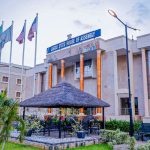WE congratulate the President-elect, Asiwaju Bola Tinubu on his hard-earned victory in the just concluded presidential election. The process was tortuous, full of twists, turns as well as “tales of the unexpected”. We wish a worthy winner well as he accepts a poisoned chalice and goes about the daunting task of rallying the republic with vigour around renewed hope.
For many, the tenor of the election has turned out to be an anti-climax. Such expressions of reservations ought not to be contemptuously dismissed or waved off, they should be explored as we move on and deepen our democracy. Discerning observers for example have asked for a revamp of the structure of the Independent National Electoral Commission (INEC) as well as perhaps a revisit of the recommendations of the Uwais committee’s a report on electoral reforms. The Uwais committee had arisen as a result of the perceived electoral debacle of the 2007 presidential election. It is to the eternal credit of the late President Umaru Yar’adua that he had the intellectual honesty and the moral circumspection to try to correct the flaws in the electoral system. Such attributes are very much needed now.
The structural debilitation of INEC must now be examined and solutions found to a myriad of problems not least those of logistics and data. The irony is glaring that logistics and data propel the modern world. The need for a thorough revamp is therefore urgent.
It is also crucial to look at the causes and effects of the low voter turnout. The election as a result of the surge in new registration and the collection of Permanent Voter Cards (PVC) had been expected to be very high. With so many first-time voters and heightened interest even in the diaspora, such expectations were valid. Unfortunately, once again, it was promise unfulfilled. Turnout on the country went down to 27%! This is awful. In some countries there are actually minimum turnout limits for the validity of elections as amongst other things a weapon against voter suppression. Saturday’s turnout is unacceptable and indicates a disturbing decline in voter participation. It has not always been like this. For example, the pre-independence general election of 1959 recorded voter turnout of 75% and the 1963 plebiscite to ratify the Republican Constitution had voter participation of 83%. There is something wrong which has to be addressed.
We also salute the raw courage of the new forces who have emerged and enthused the electorate in this electoral cycle and urge them to keep up with their endeavour, a democracy is anchored on plurality and an array of choices.
WHAT IS TO BE DONE?
T
HE president-elect has a full in tray and must act with dispatch. A transition committee with sub – committees much be constituted immediately. The expected diversity in the composition of the transition committee will by itself send out a message that the process of healing after a divisive election has commenced. All elections are divisive after which must come a truce, alignments and national democratic agreements. Once again, we urge the next National Assembly to pass a law to formally and statutorily guide the transition process. We cannot afford to continue to lag behind the rest of Africa.
The president-elect faces a daunting task: far too much of the ‘evil day’ has been postponed. It is clear as daylight that the fiscal buffers do not now exist to postpone anything the dire is cast!
The incoming president must realign the fiscal framework of a country that is technically insolvent. A national consensus must be weaved to amongst other things implement in full the recommendations of the report of the Oransaye committee on the costs of the machinery of government; multiple exchange rates must be merged and the fiscally destructive subsidies in order to grow revenue. A national consensus is interwoven with obtaining a national democratic agreement to solve the debilitations of the aforementioned problems. And of course, the process of returning to the ethos of a federal structure must begin with “the fierce urgency of now”.
The politician must now claim his place in history by transforming into a statesman. In the condition we are in there is no alternative. We wish him well and pray he succeeds, for as he succeeds we all succeed. Long live the Federal Republic of Nigeria!









